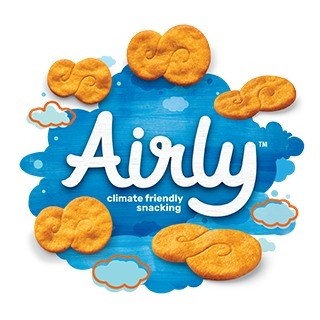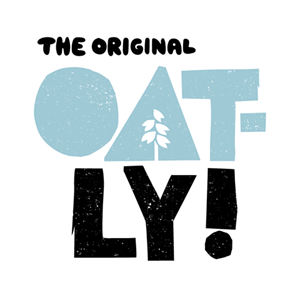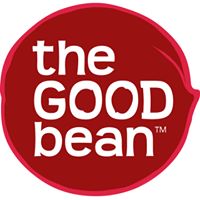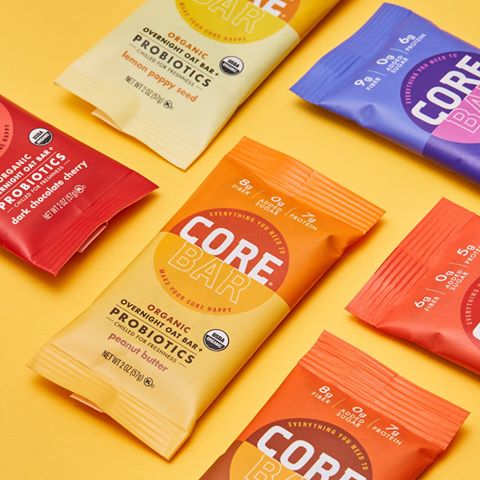Expo East 2022: Climate and Carbon Claims Keep Coming; Bar Brands Land New Distribution
Across categories, climate-friendly and carbon neutral foods at Expo East showcased a variety of approaches but entrepreneur’s operating in the space all shared a similar sentiment: consumers care about carbon, and food companies should too.
Matriark Foods, Quinn Snacks and Airly each debuted new products at the show that played up their reduced carbon footprint. Matriark exhibited the first carbon neutral pasta sauce, the brand claims, available in three varieties – Gentle Marinara, Tomato Basil and Spicy Arrabbiata. With an existing line of broths and stocks made from upcycled vegetable scraps, Matriark founder Anna Hammond noted that managing a supply chain network for upcycled ingredients can be difficult but that supply, once that network has been established, the ingredients are plentiful.
The women-owned company is now taking in imperfect tomatoes for its new line, which Hammond said are the top greenhouse gas emitting foods found in landfills. In addition to the carbon emissions impact of using upcycled ingredients, Hammond said they chose pasta sauce because of the category’s consistent, regular demand. The sauces have been certified as climate friendly via Planet FWD, a carbon tracking third-party certification platform launched earlier this year by Moonshot Snacks founder Julia Collins.
Quinn Snacks helped usher in the launch of a new certification program by independent research HowGood at the show with the new badge officially rolling out on all Quinn Snacks products next year. The HowGood Climate Friendly badge indicates that a product has a greenhouse gas footprint lower than 70% of all products assessed by the organization. The company’s analysis spans 33,000 ingredients, chemicals and packaging materials all of which has been synthesized into a single database that is used to calculate a product’s individual carbon footprint.
Airly has been operating in the carbon neutral space for a few years but introduced two new flavors of its climate-friendly crackers at the show: Butter and Cinnamon. Co-founders Jennifer McNight and Mark Izzo explained that a certification is not the brand’s top priority, stating their on-pack carbon capture graphics are just as important for their consumers as the nutritional facts panel.
“The footprint is what matters. It shows the impact of each box, each product and just how much carbon is being pulled out of the atmosphere,” said Izzo.
Wicked Kitchen Enters Foodservice Following $20M Funding Round
On the heels of its $20 million bridge funding round announced earlier this week, plant-based food brand Wicked Kitchen shared its plans to enter the foodservice channel.
Wicked Kitchen CEO Pete Speranza said the move into the channel has been in the works for some time. However, the execution timeline was pushed back when sports arenas and other venues were forced to shutter their doors amid the onset of the pandemic.
Through its new partnership with the NBA’s Minnesota Timberwolves, the company is set to finally make its foodservice debut at the Target Center next month. According to Speranza, one of the menu items the venue will carry is chili made with Wicked’s plant-based hamburgers.
The company was founded in 2018 by chefs and siblings Derek and Chad Sarno alongside Chris Kerr, partner and chief investment officer in investment firm Unovis. It currently markets a portfolio of vegan products including porridge, pizza, meal kits, meal pots, sauces and marinades and ice cream in the U.S. Wicked recently expanded its portfolio to include plant-based seafood following its acquisition of Good Catch earlier this year.
Speranza told NOSH that the company plans to integrate Good Catch into the Wicked Kitchen brand at its own pace, recognizing it may not grow at the same rate as the company’s already-established portfolio. Eventually, the plant-based seafood line will also adopt revamped packaging that more closely resembles the rest of Good Kitchen’s offerings.
The new round of funding brings the company’s total capital raised since inception to $34 million. Aside from foodservice, the capital will be raised to “ramp up global awareness,” with new products launching in Thailand and Finland in the next few months.
Plant-Based Dairy Brands Seek to Indulge Consumers’ Sweet Tooths, Place Emphasis on Sustainability
According to a market analysis report from Grand View Research, the global vegan dessert market size is expected to grow at a CAGR of 10.1% from 2020 to 2027. Against that backdrop, brands at Expo East were eager to showcase a range of new alt-dairy dessert innovations, including poppable frozen snack bites, oat milk-based novelty bars and lupini bean ice cream.
While its recently-launched soft serve and frozen novelty bars were the star of the show at Expo East, Oatly announced plans to launch several new core pint flavors, including Pineapple Upside Down Cake and Cookie Dough, later this year.
Meanwhile, Texas-based NadaMoo unveiled its latest product innovation: Frozen Snack Bites. According to a NadaMoo! spokesperson, the treats are available in five varieties – Salted Caramel, Mint, Peanut Butter, Mango and Orange Cream. The poppable bites will be available online in late 2022 and will roll out onto retail shelves in 2023.
Bar Brands Land New Distribution
In the ever-growing bar category, both Blue Dinosaur and Jonesbar are looking to make their products, which emphasize simple and short ingredient profiles, more accessible.
Blue Dinosaur has taken its paleo snack bars from its Australian roots and officially rolled out in the U.S. via distribution partnerships with KeHe and Associated Foods. The brand is co-manufacturing in the U.S. and is targeting Gen Z and millennials in its stateside launch, offering a simple ingredient list as a way to resonate with consumers who value transparency.
Elsewhere, New Jersey-based Jonesbar this month announced a distribution partnership with Hudson News that will bring the bars into airport convenience stores, part of a larger push outside of its core markets in the Mid-Atlantic and Northeast. The company was self-funded until early 2021 when it received investment from Connecticut-based Crave Better Foods, a holding company that seeks to acquire and revitalize CPG brands such as Chipwhich and Solero.
Snack Brands Sees Space Elsewhere In Store
Globally inspired, locally sourced bean snack brand The Good Bean has officially made the move into mealtime with the launch of its heat-and-eat bean line at the show. The company introduced four varieties, available in 4-packs of multi-serving, 10 oz. pouches. A spokesperson for the brand explained that The Good Bean is not aiming to go find placement in the international aisle alongside other meal kit makers, but rather to “reinvigorate” the canned bean space in store, with the goal of drawing younger consumers to the aisle.
The pouches are available in Coconut Curry, Low-carb Classic Chili, Smoky Chipotle and Santa Fe Green Chili varieties. The brand said the flavor profiles purpose draw from a range of global ingredients rather than being associated with a specific region which it believes will help appeal to a wider range of consumers. The Good Bean also introduced Japanese-inspired black edamame snacking beans in Wasabi, Thai Chili and Sea Salt flavors and has established its own domestic supply chain for the ingredient.
Elsewhere, refrigerated bar maker Core Foods, may be sticking to a similar format, but found a way to bring its brand to the center store, launching two new lines and its first shelf stable products at the show. The Oatmeal bites come in Peanut Butter and Dark Chocolate Chip flavors while the Keto Brownie Bites are available in peanut butter chocolate chip and double chocolate chip. Both products are low to no sugar and contain prebiotic fiber. The bites are available in multi-serving 4 oz. bags.
As Core moves out of the refrigerated bar space, a new brand is aiming to establish its presence in the set. Long Island-based Scott’s Protein Balls also debuted at the show with a six SKU line of refrigerated protein balls in Peanut Butter Cacao, Brownie Batter, Java Peanut Butter, Confetti, Mint Chocolate Chip and Snickerdoodle flavors. The balls are dairy, soy and gluten-free and available in a range of pack sizes.
























